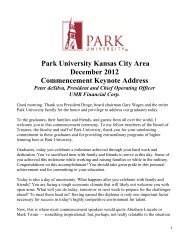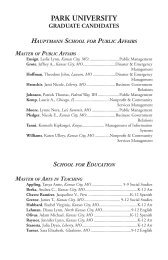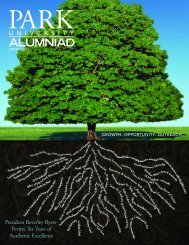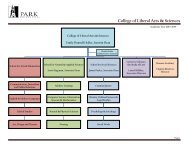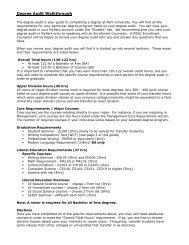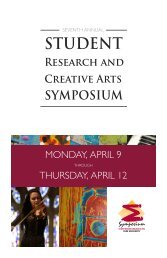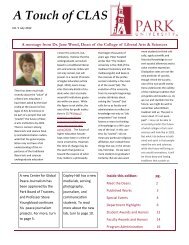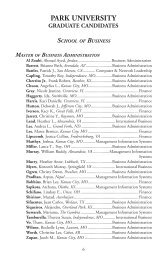How to Write a Radio Serial Drama for Social Development- PDF
How to Write a Radio Serial Drama for Social Development- PDF
How to Write a Radio Serial Drama for Social Development- PDF
You also want an ePaper? Increase the reach of your titles
YUMPU automatically turns print PDFs into web optimized ePapers that Google loves.
142 Chapter Nine: Interactivity and Enter-Educate <strong>Drama</strong><br />
5. Give answers in the same words the listeners are likely <strong>to</strong> use.<br />
Generally, listeners will answer with a few brief words, not with<br />
complete, correctly structured sentences. The host, there<strong>for</strong>e, should give<br />
similarly brief answers. When Binod answered the question about the age<br />
of puberty, he said, “thirteen or fourteen,” using exactly the same words<br />
that listeners would be likely <strong>to</strong> use. He did not use a <strong>for</strong>mal answer,<br />
such as, “The age at which puberty begins <strong>for</strong> a girl is usually thirteen or<br />
fourteen.”<br />
6. Give the correct answer immediately after the pause. Listeners want <strong>to</strong><br />
and need <strong>to</strong> hear the correct answer as soon as possible, so the answer<br />
must be given immediately following the pause. Words of<br />
encouragement, like “that’s right”or “yes,” can be added after the answer.<br />
Avoid using the words, “Yes, you are right,” because this inadvertently<br />
might rein<strong>for</strong>ce a listener’s wrong answer. It is safer <strong>to</strong> say, “Yes, that’s<br />
right,” immediately after giving the correct answer.<br />
7. Avoid “yes” or “no” questions. Listeners have a fifty percent chance of<br />
being correct, no matter what they reply, when the question requires only<br />
a simple “yes” or “no” answer. Moreover, the point of interactive<br />
questioning is <strong>to</strong> have listeners repeat the important pieces of<br />
in<strong>for</strong>mation which they should be learning. In line 50 of the script<br />
above, <strong>for</strong> example, it might seem more natural <strong>for</strong> Binod <strong>to</strong> ask, “Tell<br />
me, can you recall the analogy she used” That question, however, could<br />
invite a simple response of “yes” or “no” from the listener. The question<br />
is framed, there<strong>for</strong>e, in a different way: “Tell me—if you recall it—what<br />
was that analogy”<br />
Types of Post-Program Interactivity<br />
There also are a variety of ways <strong>to</strong> invite listeners <strong>to</strong> respond or react <strong>to</strong> a<br />
drama after the conclusion of the day’s broadcast.<br />
1. Letters. Listeners can be invited <strong>to</strong> write <strong>to</strong> the organizers of a radio<br />
program, either submitting questions, telling their own experiences, or<br />
sharing their ideas on the <strong>to</strong>pic under discussion (e.g., family planning).<br />
Some radio dramas allow a few minutes at the end of each broadcast <strong>for</strong><br />
a “Listeners’ Forum,” during which letters from listeners are read and<br />
their questions answered by an expert. Alternatively, every tenth program<br />
in a series might be devoted entirely <strong>to</strong> a Listeners’ Forum. Early<br />
programs should air a few specially constructed pro<strong>to</strong>type letters <strong>to</strong> give<br />
listeners an idea of the kinds of questions and suggestions that would be<br />
welcome. The address <strong>to</strong> which listeners should send their letters should<br />
be announced at the end of each program.<br />
Some radio projects even prepare special post cards or aerograms<br />
bearing the project logo <strong>to</strong> mail as a “thank you” <strong>to</strong> each listener who<br />
sends in a letter or question. This lets listeners know that their<br />
contributions are important, even if not all letters can be read on the air.




